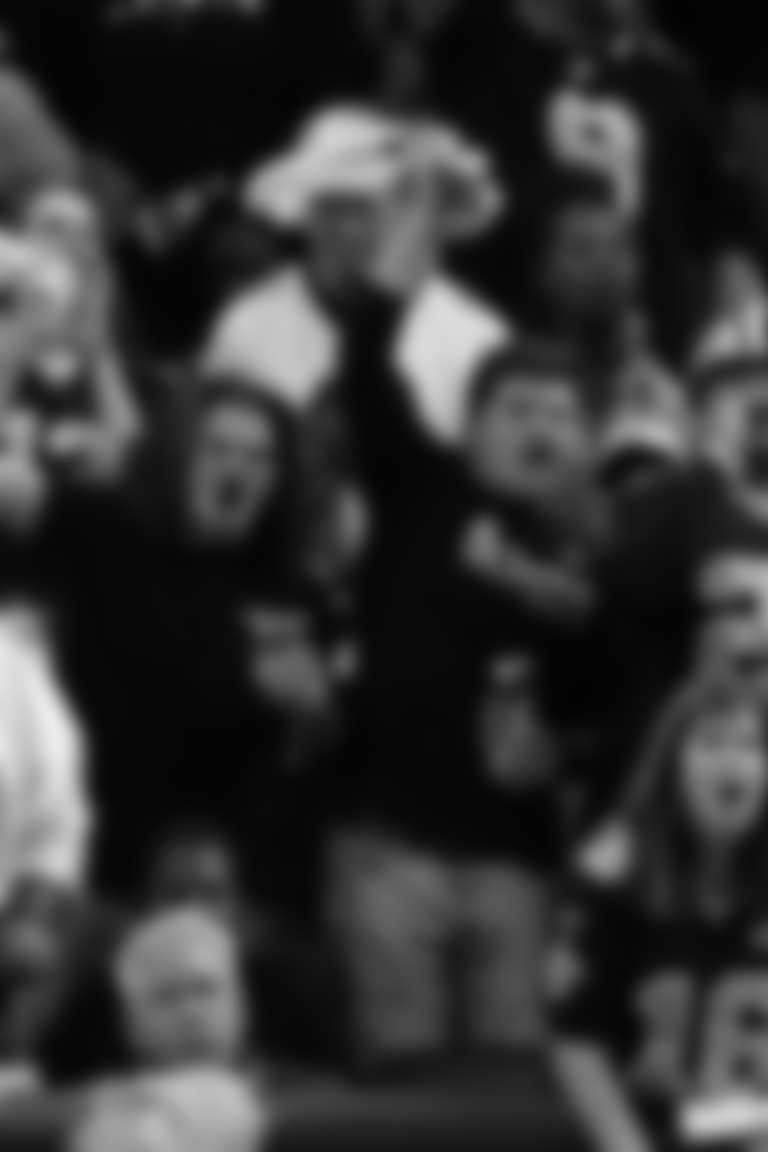New Orleans Saints Head Coach Sean Payton spoke with Sean Kelley and John DeShazier on Wednesday’s “Black and Blue Report” podcast (interview starts at the 6:05 mark). Below are quotes from the interview:
We talked to Mickey Loomis, and he spoke about an offseason plan that included free agency, the draft, and whatnot. He seemed to be very pleased with how it went. What is your take on all of that?
"It's a process that really begins right when the season ends, and the first important part of it is evaluating and grading your own team. As soon as the season ends, we're in meetings for pretty much at least a good part of a week, maybe a week and a half, taking our grades, looking at our players, and then categorizing them. And then moving forward with those grades,
"You begin to formulate a checklist. Some of that might be things you can take care of in free agency. Some of that might be some things that are going to be draft related. Often times some of it revolves around decisions in your own team. To be at this point and to be able to have signed some key players – when I say that, obviously the addition of a guy like Jairus Byrd and then being able to re-sign Zach Strief and Pierre Thomas. I could go on and on, but it's a process that begins right after you grade your team, and actually will take itself all the way through this draft this upcoming weekend.
"Of course Saturday the draft ends, and Saturday night we're signing free agents and the roster begins to take shape at it's 80 number. Generally there's less activity at that point. You'll see some teams sign some veteran free agents based on how the draft goes. If they weren't able to maybe acquire a player at a certain position, they know that they've got X, Y, Z as a fallback option. We're kind of past the midway point. Obviously anytime you get to the draft is a real exciting time for every organization because it's really the lifeblood of your team."
How important to the draft process is it to be successful in free agency?
"I think in a perfect world – and certainly in our business we don't live in one – you'd like to always be in a position to take who you feel the best player is. With the economics and the way the teams are broken down now, part of need fits in there. It has to. Then it's just a matter of the gap. If there's a clump of players in the third round that we have graded very close, a deciding factor might be, 'Hey, this is a need position for us based on our current depth chart.' That's where free agency can help you. I think the mistake sometimes in free agency is the idea that, 'Hey, we're going to just sign a free safety,' as opposed to targeting someone you really feel like fits, and understanding that if you're not able to acquire the player, you're not able to, and you move on.
"You don't look to sign just anyone at that position. We've tried to do that, and we've been fortunate. We've hit on some key players in free agency, starting with Drew Brees…Keenan Lewis a year ago. Finding the fit for your club is important, and that certainly gives you a little more freedom on draft day."
Everybody wants to put this into two categories: either a team has needs that they need to meet in the draft, or you hear, 'We're going to take the best player available.' Is it as simple as those two things, or are those kind of cliché?
"Well it's never just that simple. I think there are probably, around the league, some organizations leaning towards one of those philosophies than maybe others. I do think this: I think that in this process, you really want to be mindful of the consensus grades and the conviction you have. I think one of the things that we're trying to do every year is reduce the list on the draft board and really identify who we feel would be great fits based on their skill set, based on all the other things that we value. Then we work our way through some of the need-based or value-based discussions.
"You'd love to be in a position to select the highest graded player that everyone in the room has a good idea of who he is. It's not until the second day or third day, those challenges increase a little bit and you have to have a good vision for what you're looking for in the later rounds. I think every year – and I've said this before – the great measure of a draft is all the picks. And when you're able to have a guy like (Zach) Strief, Marques Colston, Rob Ninkovich playing with another team, those players still playing in the league in year nine.
"Those are good selections, considering two of them were seventh round picks and one a fifth round pick, Jahri Evans in the fourth. A good draft, and we have an opportunity this year with the picks that we have to make some good decisions and good selections. It's the foundation of what we're doing."
Working under the assumption that you are not looking to fill a quarterback need in the first round, do you almost hope there is a run on quarterbacks early in the round so that other players who better fit your board may be still available?
"When you go through projections and you try to go through scenarios of who might be there at 27, you certainly benefit if there's players that maybe you don't have graded as high, that get drafted ahead of you. It pushes a player that you value further back. There are a few positions that get taken earlier than most: quarterbacks are one of them. You see defensive backs, corners specifically, pass rushers and left tackles. Those are positions that are hard to find in free agency, and if you do they're expensive. Those are positions, typically, that get drafter a little bit earlier, a little bit higher than some other spots."
Which is more exciting to you: hitting on a first round pick or on an undrafted rookie?
"You want to hit with your first round pick; there's so much attention given to it. It has been paramount with the amount of money you had to pay that player. That has changed a little bit in today's game. You get to that rookie camp, and you get to see them move around. The undrafted free agent, sometimes, doesn't define himself right away.
"The challenge that we have now, it's hard for any of these players to define themselves until we get into pads. Because of the offseason changes, that information is sometimes a little later than earlier. With Khiry (Robinson) for instance a year ago, there was talk and we debated whether he was going to be part of our 80 going to training camp. Fortunately, we brought him to training camp and once the pads came on he was a much different player than we expected, to his credit. It's always good when you're able to see a player who wasn't drafted come in, and I think it's good for your program."
"We preach all the time about really evaluating once they get here, what we see. How we acquire the player is the process we're in right now. Once that ends, now it's truly evaluating them and trying to find the best fit. I think both can equally be exciting. I think probably a little bit more nerve-racking how your first round pick does, right? There's more attention given to that player. I think our scouts and really all of our staff have done a really good job of finding players - Chris Ivory and Pierre Thomas for example. We've got a number of guys that are undrafted players that are on our roster. That helps when you get on the phone Saturday and you're talking to someone at a school that is going to make a decision in a half an hour or an hour's time frame, they can look at the history of your program and see that there are a number of players that have made it."
How big of an effort is it for you and your staff to get to Thursday, May 8?
"Well, there are a lot of reports written. Typically, most teams in our league have areas scouts. These scouts have a certain region of schools. On top of that, you have scouts that cross check or come into those schools where players are graded at a certain grade and they themselves do a cross check, then obviously your director, your head of personnel, Ryan Pace, the coaches. With a lot of these players there's five, six, seven, grades given.
"Then there's the process of reading the player, reading the profile, paying close attention to the film, and then the postseason work. There's a whole injury section with regards to the durability of a player. Obviously, we pay close attention to off the field issues. All of those go into the process. Every team does the same. They may do it a little differently, but there are a lot of people, a lot of man hours that are spent on the road, a lot of workouts, a lot of travel that all go into gathering as much information as you can to make the best decision possible."
Your first year, you drafted No. 2 overall. Your team now drafts consistently toward the end of the draft. What does that say about your program?
"I think that you want to be picking – I think the best spot to be picking is 32nd, and we've picked there before. I think that there are a number of reasons we've gotten to this spot. Typically, it starts with finding the right people: the right people here working for the organization, and also the right people this upcoming Thursday, Friday, and Saturday, the players that we bring in. I think there's an expectation level that our locker room holds for who we're going to select.
"We always ask ourselves the question, 'How is this player going to fit in our locker room?' We put a lot of stock in that. There are some talented players that are off our board that may or may not be on some other people's board. It's really trying to have a vision. It's us collectively working towards that same common goal and the teamwork and putting the team first. I think we've been able to find those players, and that has been priority one is winning football games. Hopefully we can continue picking late in the evening Thursday and still find good football players, which I think this year we will be able to do."
Can you draw me a comparison between a game day and what the draft is like?
"Game day is much different. I think there's a lot of excitement that is generated with the draft, but it's nothing like game day."


















